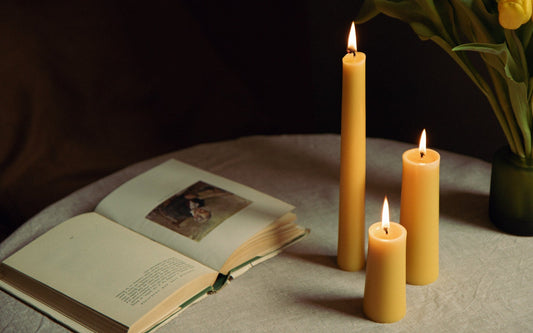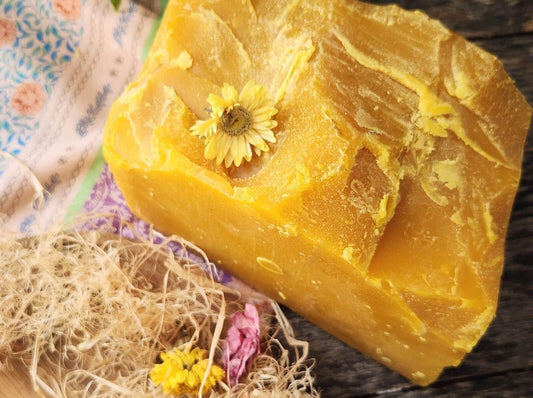Meeting the Beekeeper: Bioni Samp
We had the pleasure of speaking with Bioni Samp, a Yorkshire artist based in London who has discovered a captivating blend of beekeeping, electronic music, and a love for nature. From childhood fascination to innovative creations, we explore his unique journey, creative process, and commitment to raising environmental awareness.
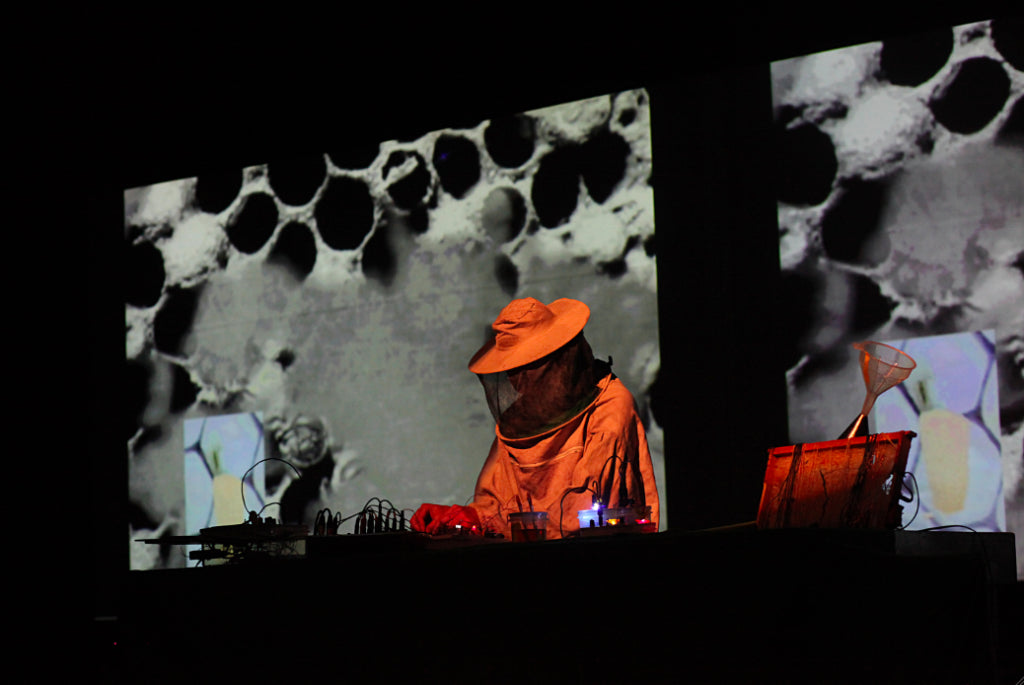
BZZWAX: How did you get into beekeeping?
Bioni: Well, it all started because I'm from Yorkshire, and my father had a small farm where our neighbours happened to keep bees. As a curious kid, I used to visit their beekeeping area and check out the bees. I still remember the first time I saw them, I ran away in fear. But despite that initial reaction, I got into beekeeping at a young age. Although I forgot about it for a while, I eventually rediscovered my interest in beekeeping and started again.
What sparked your interest in combining beekeeping with electronic music?
It was actually a combination of factors. At the time, I was really into electronic music and experimenting with different sounds. But I also stumbled upon some old beekeeping techniques from the 1960s and 70s, where people used tape recorders to capture the sounds of bees. They discovered that by analyzing the recordings, they could predict swarming behavior. This connection between sound and bees intrigued me, and I decided to explore it further by incorporating bee sounds into my music.
How did you start incorporating bee sounds into your music?
Initially, I used filters in software like Pro Tools to isolate the specific frequencies of bees from the recordings. This allowed me to add textured ambient elements to my music, inspired by artists like Brian Eno. I wanted to create a presence and raise awareness about bees through my music. So, I started with adding buzzing sounds in the background and gradually developed tracks that combined bee sounds with techno beats, resulting in a unique fusion.
"I wanted to create a presence and raise awareness about bees through my music."
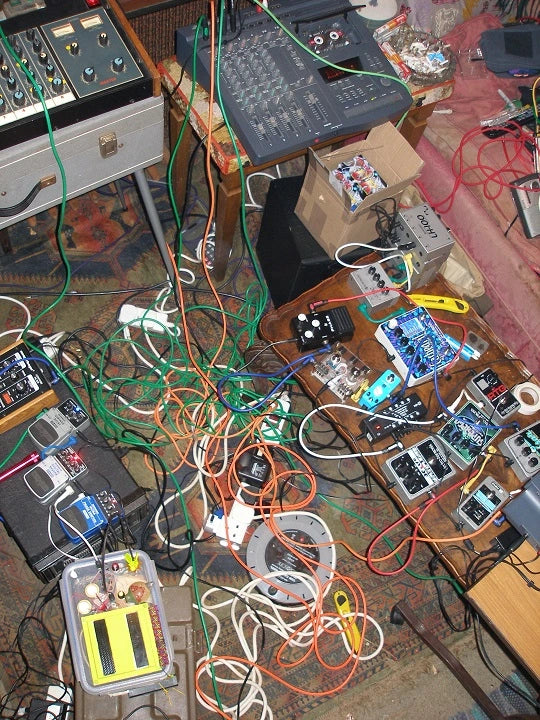
How did your interest in electronics lead to creating your own synthesizers?
As I delved deeper into beekeeping and music, I became fascinated by synthesizers but couldn't afford the expensive ones available at the time. That's when I decided to take matters into my own hands and started building my own basic synthesizers. I had some experience with electronics, and by incorporating my knowledge and experimenting with circuits and oscillators, I managed to create synthesizers that could emulate bee sounds. It was a gradual process that took several years, but it allowed me to achieve the desired results within my budget.
Can you explain the process behind your unique synthesizers and their connection to bee sounds?
Sure! My synthesizers are built around the idea of three oscillators, each representing a different bee—queen, worker, and drone. By tuning each oscillator to the specific frequency of its corresponding bee, I created a modular synthesizer that could generate bee-like sounds. I also realized that most punk music revolves around a few simple chords or notes, so I kept the synthesizers focused on the essential elements, similar to the punk ethos. The result was a fusion of electronic music and the distinct sound of bees.
What future projects are you working on?
Well, due to the pandemic, I haven't been able to do many gigs in recent years. However, I've been exploring new avenues. One of my recent projects involved creating a unique bass guitar carved out of a single piece of green oak wood. This bass guitar has three strings, representing the three types of bees. I'm currently experimenting with connecting it to the Bella software, which has built-in effects. I'm also considering adding a touch-sensitive strip to enhance its capabilities. Additionally, I'm working on creating artwork that raises awareness about the decline of insects and inspires people to reconnect with nature and bees.
"By incorporating natural sounds, like those of bees, into music, we can create an emotional connection and help people reconnect with nature on a subconscious level."
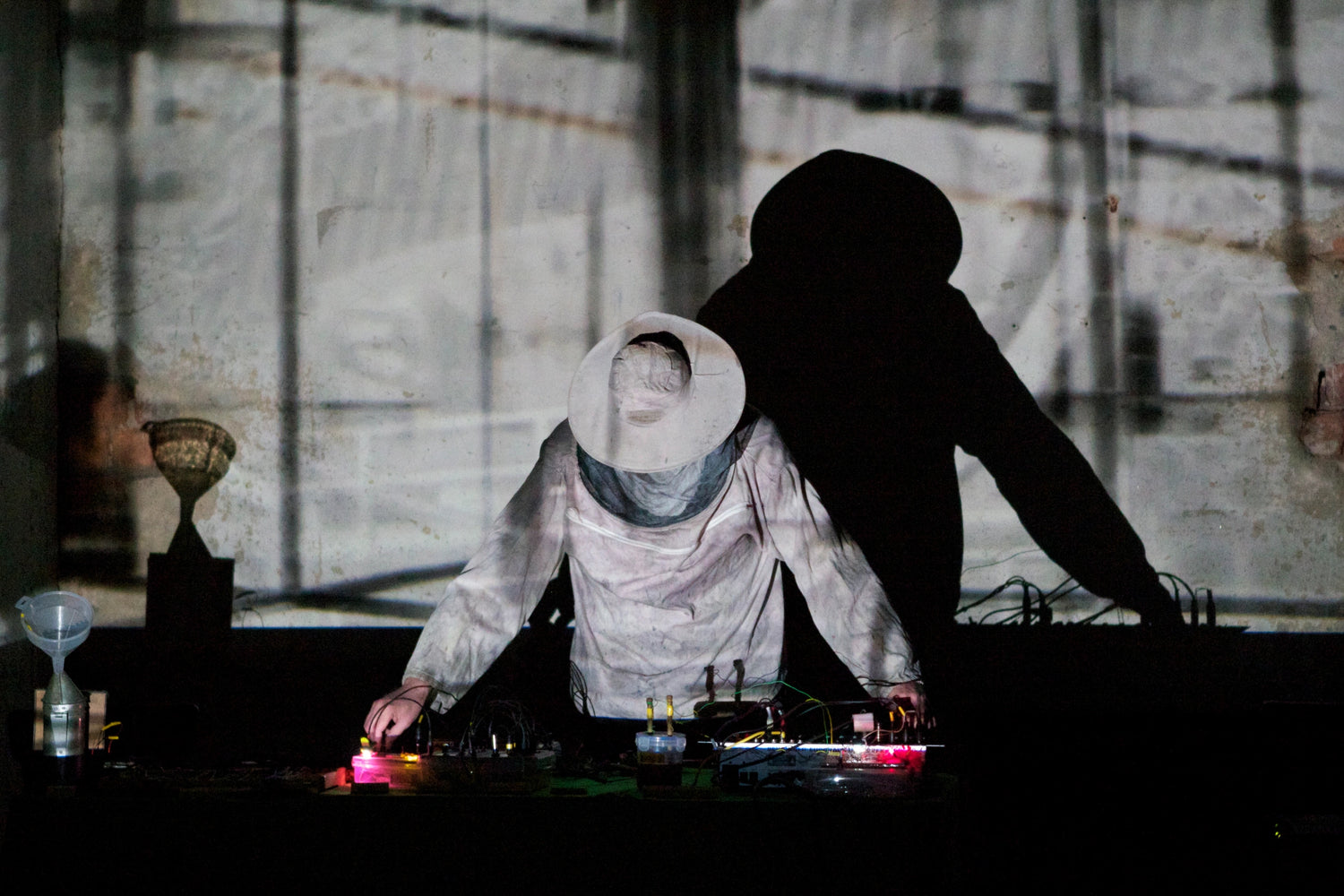
Can you share your thoughts on the importance of reconnecting with nature and the current environmental challenges?
Absolutely! In today's fast-paced world, many people have lost touch with the natural world. Spending excessive time on computers and phones has led to a significant disconnection from nature, and that has consequences for our well-being and the environment. Reconnecting with nature, including bees, is essential for our own mental and physical health. Bees, as pollinators, play a crucial role in our ecosystem, and their decline is alarming. By raising awareness through art, music, and other creative mediums, we can highlight the importance of protecting the environment, combating pollution, and taking steps to preserve our natural resources.
How do you see the role of frequencies and sound in reconnecting people with nature?
Sound has always had a powerful effect on human emotions and can be deeply soothing or inspiring. By incorporating natural sounds, like those of bees, into music, we can create an emotional connection and help people reconnect with nature on a subconscious level. Frequencies also play a role in this process, as certain vibrations can affect our mood and overall well-being. By exploring and utilising the frequencies of nature, we can create music that has a healing and transformative effect, allowing people to reconnect with the natural world in a unique and engaging way.

Bioni embodies the remarkable combination of passion, creativity, and a deep-rooted connection with nature. Through his beekeeping endeavours and electronic music creations, he found a way to channel his love for the environment and inspire others to appreciate its beauty.
With his ongoing commitment to raising environmental awareness, we can look forward to witnessing his continued impact and the transformative power of blending seemingly disparate interests.


